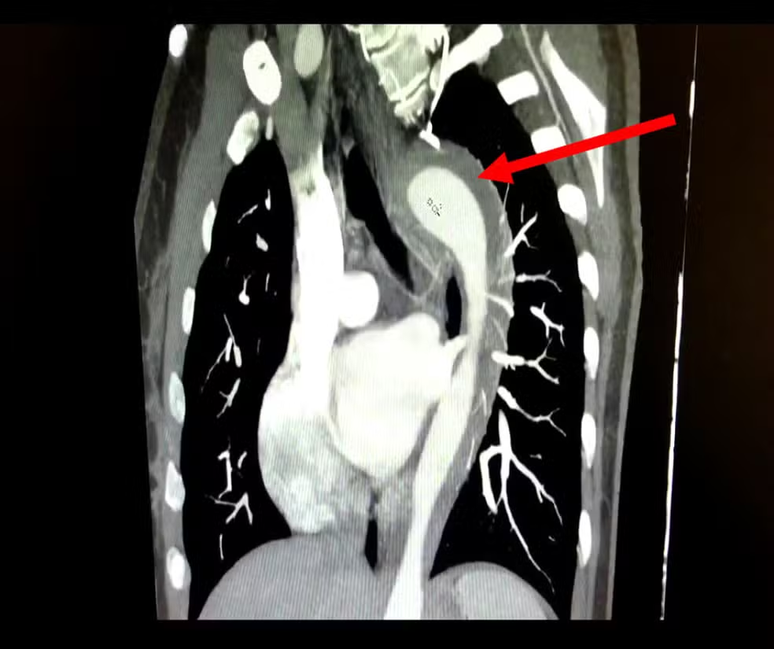Experts highlight the main damage caused to the body by pollution. Find out how to reduce impacts and protect your health

On August 14, the Day to Combat Pollution is celebrated, a date created to alert the population to the damage that pollutants cause to the health of the planet – and also to ours. After all, according to the World Health Organization (WHO), 99% of people in the world breathe air that is more polluted than the body’s recommended limits.
Unfortunately, pollution isn’t just in the air, it can also be found in water, food (with pesticides) and even the chemicals we use. All these pollutants can influence the hormonal and metabolic functions of the organism, predisposing the appearance of various dysfunctions.
“All can cause negative impacts on the health of the population and on the environment. The problem is aggravated in developing countries, such as Brazil, where environmental legislation is often lacking, coupled with the lack of basic sanitation in these countries, which aggravates the scenario “, explains nutritionist Dr. Marcella Garcez, director and professor of the Brazilian Association of Nutrology (ABRAN).
Therefore, contact with pollution leads to various damage to health, compromising not only the lung, causing respiratory diseases, but also a cascade of other damages, affecting the heart and kidneys, causing metabolic diseases and infertility, as well as skin problems. . Experts explain more about these problems.
Pollution and heart damage
In 2018, a scientific study by the American Heart Association revealed that air pollution was responsible for approximately 3.3 million deaths worldwide from cardiovascular disease in 2016. This number exceeds the number of deaths attributed to chronic conditions. like smoking (2.48 million). obesity (2.85 million) and diabetes (2.84 million).
Produced by the combustion of fossil fuels, polluting microparticles are deposited in the blood. The result is inflammation and systemic oxidative stress, with the risk of increased vasoconstriction, blood pressure, heart rate and insulin resistance.
kidney problems
The rise in global temperature, caused by pollution, is contributing to more cases of kidney disease. Despite this, the problem is on the rise and tends to grow even more in the coming years, according to nephrologist Dr. Caroline Reigada, an ICU specialist with the Brazilian Association of ICU.
“Heat-induced sweating and subsequent dehydration predispose to an increased risk of developing kidney disease. Also, as global surface temperatures continue to rise, the negative effects are aggravated for people who already have kidney disease. Poor quality of kidney disease. air is also associated with a chronic progressive renal failure, “explains the doctor.
metabolic diseases
According to the nutritionist Dr. Marcella, a pollutant can have different types of action, in other words, depending on the chemical compound, it will have different impacts on hormonal or metabolic activities depending on the organ concerned. “Several studies have associated this compound with changes in our reproductive system, increased risk of obesity, cancer and other ailments. Some of these compounds affect the individual’s microbiota and lead to metabolic disorders,” she reveals.
Pollution can cause infertility
“Toxic environmental agents can affect fertility by altering a woman’s hormones and menstrual cycle, interfering with sperm quality, or causing changes in the development of a fetus or baby. Some agents can pass from a pregnant woman to a fetus and can lead to genetic mutations, “explains Dr. Rodrigo Rosa, specialist in human reproduction and clinical director of the Mater Prime clinic.
Aging and skin allergies
According to dermatologist Dr. Paola Pomerantzeff, member of the Brazilian Society of Dermatology, several epidemiological studies show the impact of pollution on the skin. Big enemies are particles and microparticles that cause various damage and inflammation. Wrinkles, blemishes, dark circles and sagging are just some of the problems pollutants can cause.
“These processes can lead to an increase in inflammatory skin diseases such as acne, dermatitis and psoriasis, collagen degradation and skin aging. For this reason it is essential to include the use of antioxidants and anti-pollution substances in the beauty routine, especially in the case of of people living in large urban centers, metropolises and megacities “, he points out.
How to reduce the health impacts of pollution
Therefore, challenging as it may seem, it is possible to mitigate the damage caused by pollution to health. For this, Dr. Marcella recommends:
- Consume food grown without pesticides;
- Avoid foods packaged in plastic with polycarbonate A;
- Avoid putting plastic pots (which are not suitable for this) in the microwave, or in contact with heated foods and liquids;
- Do not buy bottles that do not have the Inmetro seal;
- Do not buy packaging in poor condition and dented cans, as toxins can come into contact with food.
“To protect yourself, a balanced, varied and as natural diet as possible is always the best way. It is important to privilege foods from organic farming and avoid the consumption of ultra-processed foods”, reiterates the nutritionist.
Healthy habits also reduce the impact of pollution on the heart and kidneys, according to Dr. Carolina. “To prevent kidney disease, you should increase your water consumption and eat a healthy diet. In addition, it is important to regularly visit a trusted doctor for early diagnosis and intervention of genetic kidney diseases and comorbidities such as hypertension and diabetes,” he concludes. . .
Source: Terra
Benjamin Smith is a fashion journalist and author at Gossipify, known for his coverage of the latest fashion trends and industry insights. He writes about clothing, shoes, accessories, and runway shows, providing in-depth analysis and unique perspectives. He’s respected for his ability to spot emerging designers and trends, and for providing practical fashion advice to readers.







